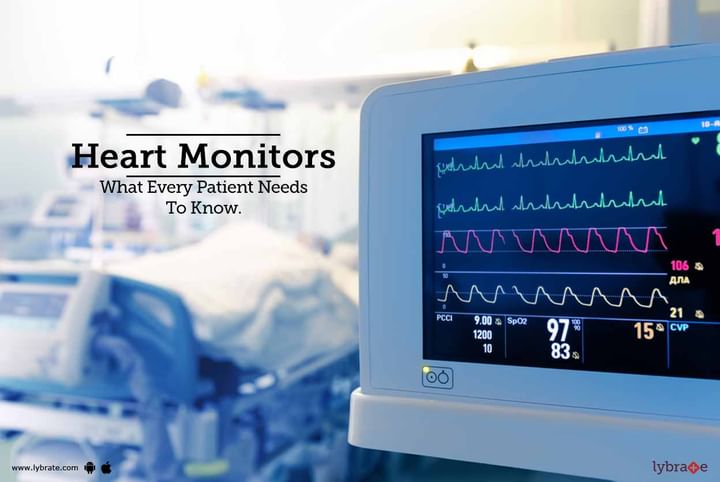Heart Monitors - What Every Patient Needs To Know.
Heart palpitations have been one of the most common health issues that patients complaints and consult a physician for. In most cases, they are quite benign. But sometimes they could be symptomatic of an underlying heart condition. To diagnose them though, your heart activity needs to be monitored for a period of time. Hence, the use of a heart monitor to make a diagnosis is vital. Heart monitors are diagnostic tools that read the heart’s electrical activity which can be used to prescribe specific therapies and medications.
Types of Heart Monitors-
- Holter Monitors
- Event Monitors
A portable battery operated device can be worn for a period of 24-48 hours. With wires that have silver coin-sized electrodes that can be attached to your skin comfortably, they record your ECG continuously.
An event monitor records the patient’s heart rhythm and rates for a few weeks up to 30 days to determine the cause of a transient event. It is used to monitor patients whose symptoms are infrequent and unpredictable, to allow for a greater chance to capture an irregularity.
Worn throughout the day or two days, it is used to detect cardiac conditions like atrial fibrillation or a possible stroke When experiencing symptoms, the recording is initiated by the patient for a brief period to record the event.
How do heart monitors work?
Irregular heart rhythms can come and go. Heart monitors record heartbeat over a long period of time as you go about your daily, normal activities. It helps evaluate if your medications are working, if you have other symptoms like faintness, or if your heart is getting enough oxygen.
Difference between a fitness tracker and a heart monitor
A fitness tracker will only record your heart rate. A heart monitor tracks heart rate and also the more specific ECG information and heart rhythm.
Risks of heart monitors
There are no risk factors involved with the use of a heart monitor. Since the electrodes are taped to your chest with adhesives, if you allergic it may cause some mild skin irritation.
How to use a heart monitor?
A trained technician will attach the electrodes to your chest. You might have to shave a patch of chest hair to ensure that the electrodes attach firmly. Since they are portable, you will be able to carry it in your pocket quite easily or sling it across your shoulders. You will be required to keep a diary of your activities through the day. You will also have to make a note in your diary if you experience any symptom like dizziness, shortness of breath or chest pain. These notes will then be compared to the changes in your ECG recorded by your heart monitor.
Precautions
Since they are basically electromagnetic devices there are a few simple precautions one needs to take when wearing a heart monitor. They are-
- Remove the heart monitor before you take a bath or a shower, or go for a swim.
- Do not take an X-ray test while wearing the monitor.
- Keep away from high voltage areas, large magnets and metal detectors.
If the rhythm and rates of the monitor show an underlying symptom, your cardiac physician can then diagnose it. They are also helpful in diagnosing patients with severe anxiety and panic disorders. And since these monitors are connected to a database, they offer diagnostics in real time and with higher accuracy.
In case you have a concern or query you can always consult an expert & get answers to your questions!



+1.svg)
